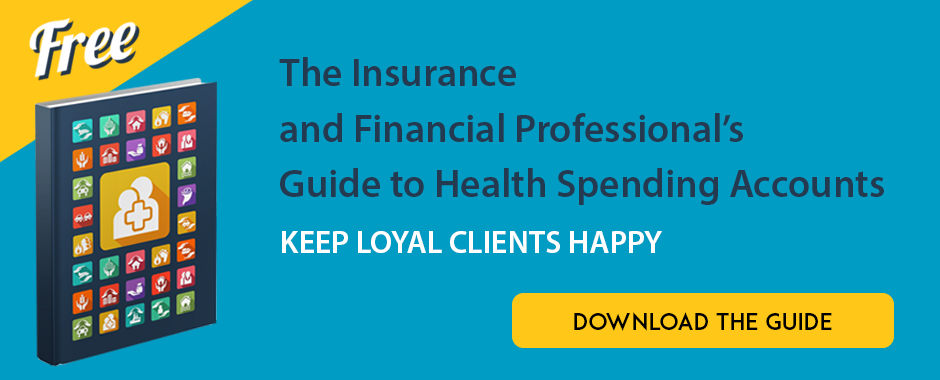Updated: June 2018
Small business owners, contractors, and incorporated professionals across Canada have been successfully using Health Spending Accounts to reduce their medical expenses for over two decades.
As a Financial Planner in Canada, here's what you ought to know when selling this tax plan:
What makes a Health Spending Account (HSA) ideal for small business owners?
Affordability
An HSA is the most affordable means for a small business owner to pay for his personal medical expenses.
- Write off 100% of your personal medical expenses through your business
- Get cost control and avoid expensive premiums
- No deductibles, co-payments, or additional fees to join
Full Coverage
An HSA offers 100% coverage.
- Get a wide and comprehensive range of eligible medical expenses including braces and laser eye surgery
- Unlike a traditional insured plan, there are few limits when accessing your benefits
- Coverage includes your dependants
Easy to use
Health Spending Accounts are designed with small business owners in mind.
- The claim process is 100% digital and easy to use
- No complicated exclusions and conditions on your claims
- No medical underwriting / hidden policies
Why should you market an HSA?
1. An HSA sells itself
An HSA is a natural door opener to your portfolio of products. It does not require the same level of commitment and trust as most financial products. You can easily qualify a lead by asking the following three questions:
- Do they own a business?
- Do they pay income tax?
- Do they have medical expenses?
If they answer yes to all three questions, chances are an HSA will add value to your client.
2. Great for building a client base
By leading with the HSA, relationship building is facilitated. When you demonstrate the savings with a HSA, you are in a trusted position to show your client other products in your portfolio. Moreover, the ideal candidate for an HSA is also ideal for your more sophisticated investment products since they own a business and most likely have a family.
Think of a HSA as your anchor product, much like mortgage at a bank. Once you have them secured on one product, you can more easily introduce your next idea.
3. Diversify your product portfolio
A HSA is in the nature of insurance but it is more of a tax plan than a traditional insurance plan. By adding an HSA to your portfolio, you are adding diversification to the mix and expanding your knowledge base. You can impress your clients by providing a complete range of financial planning.
4. If you don't offer a HSA to your client, someone else will
The HSA is becoming mainstream. The product was more obscure in 1997 when Olympia began pioneering the product. Today, many financial professionals include a HSA in their repertoire of products. Ideally, you'd like to add value and service your client in as many ways possible. The HSA is great way to put a fence around your client and ensure they keep their business with you.
Are you a Financial Planner / Advisor in Canada?
Learn how a Health Spending Account with Olympia creates value for you and your clients.
No set up fees. No administration fees. No premiums.

Additional HSA Resources:
HSA overview [Short Video]
Canada's Next Generation Health Spending Account
HSA Guidelines
HSA Limits
Backdating an HSA
What Accountants need to know about an HSA
HSA claims
HSA and your dependants
HSA vs Health Insurance
How to choose a HSA Provider